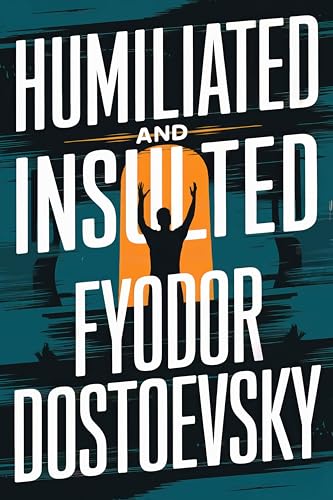
First published in 1861, Fyodor Dostoevsky’s Humiliated and Insulted (Unizhennye i Oskorblennye) is a deeply emotional exploration of love, betrayal, and the moral struggles of individuals caught in the web of societal and personal conflicts. Written shortly after Dostoevsky returned from exile in Siberia, this novel bridges the gap between his early works and the profound psychological and philosophical depth of his later masterpieces. The story revolves around Ivan Petrovich, a struggling writer who finds himself entangled in the lives of three central the virtuous but vulnerable Natasha, her manipulative lover Prince Alyosha, and the innocent orphan Nelly, who is haunted by a tragic past. As Ivan narrates the tale, he becomes both a participant in and a witness to the suffering of those around him, reflecting on the power dynamics, moral dilemmas, and emotional toll of their circumstances. At its core, Humiliated and Insulted is a meditation on human resilience and the complexities of forgiveness. Dostoevsky vividly portrays characters whose inner lives are marked by guilt, shame, and longing, while exposing the societal structures that perpetuate inequality and pain. The novel’s title reflects not only the physical and emotional suffering endured by its characters but also Dostoevsky’s broader critique of a world where dignity is frequently trampled by power and ambition. The novel is rich in Dostoevsky’s hallmark the conflict between self-interest and altruism, the redemptive power of love, and the search for meaning amidst suffering. Through the character of Nelly, who embodies innocence and tragedy, Dostoevsky poignantly examines the vulnerability of those cast aside by society. Meanwhile, the moral struggles of Natasha and Alyosha highlight the painful contradictions of love and loyalty. While Humiliated and Insulted lacks the philosophical complexity of Dostoevsky’s later works, it is an emotionally charged and deeply human narrative that showcases his evolving mastery of character and storytelling. The novel captures a world teetering between light and darkness, where the smallest acts of compassion can shine through the bleakest circumstances. For readers seeking a compelling and heartfelt story that delves into the depths of human emotion and morality, Humiliated and Insulted offers a powerful and thought-provoking experience. To read Humiliated and Insulted is to step into a world of raw emotion and moral ambiguity, to witness the resilience of the human spirit in the face of cruelty, and to experience Dostoevsky’s unique ability to illuminate the struggles and triumphs of the human condition. It is a story that resonates with timeless truths about love, suffering, and the enduring pursuit of dignity.
Author

Fyodor Mikhailovich Dostoevsky was a Russian novelist, short story writer, essayist, and journalist. His literary works explore human psychology in the troubled political, social, and spiritual atmospheres of 19th-century Russia, and engage with a variety of philosophical and religious themes. His most acclaimed novels include Crime and Punishment (1866), The Idiot (1869), Demons (1872), and The Brothers Karamazov (1880). Many literary critics rate him as one of the greatest novelists in all of world literature, as multiple of his works are considered highly influential masterpieces. His 1864 novella Notes from Underground is considered to be one of the first works of existentialist literature. As such, he is also looked upon as a philosopher and theologian as well. (Russian: Фёдор Михайлович Достоевский) (see also Fiodor Dostoïevski)